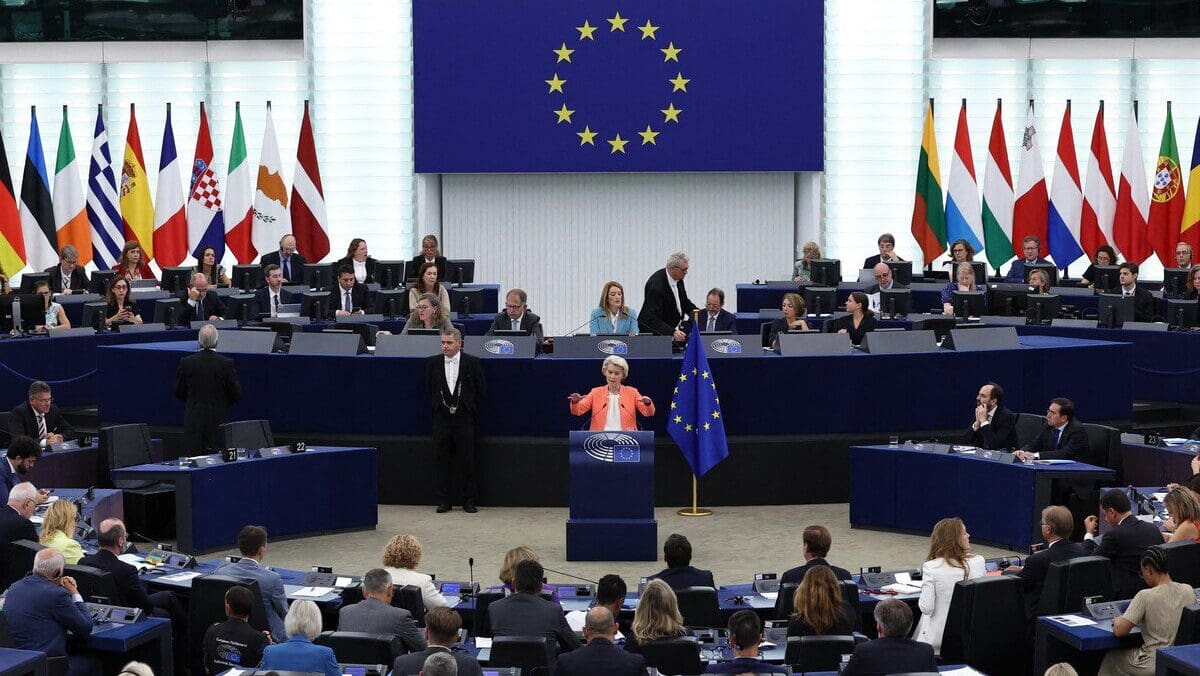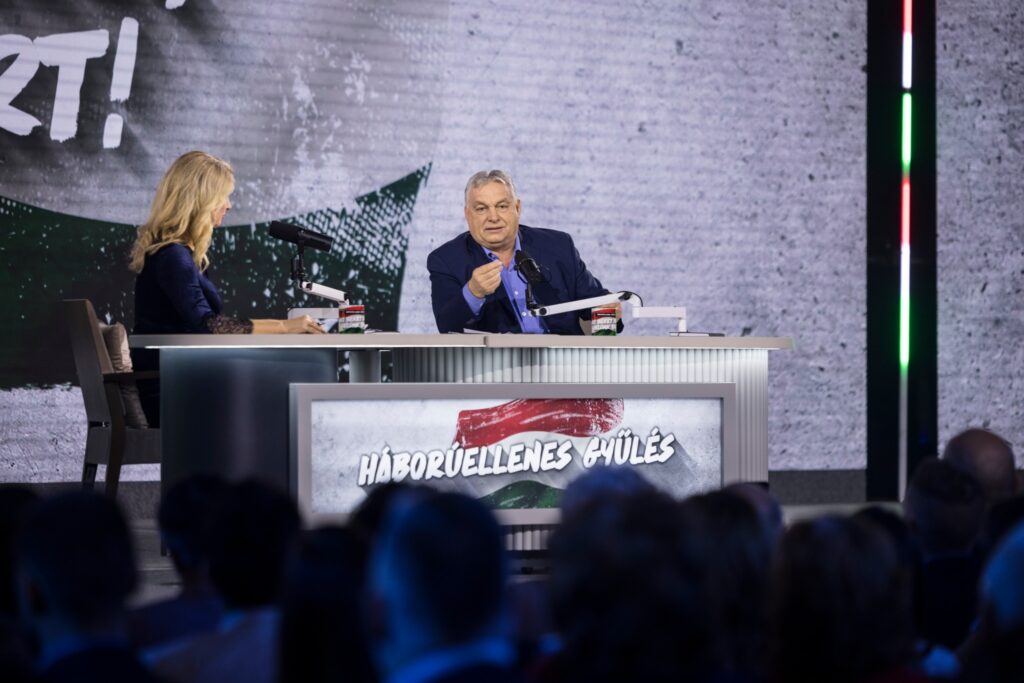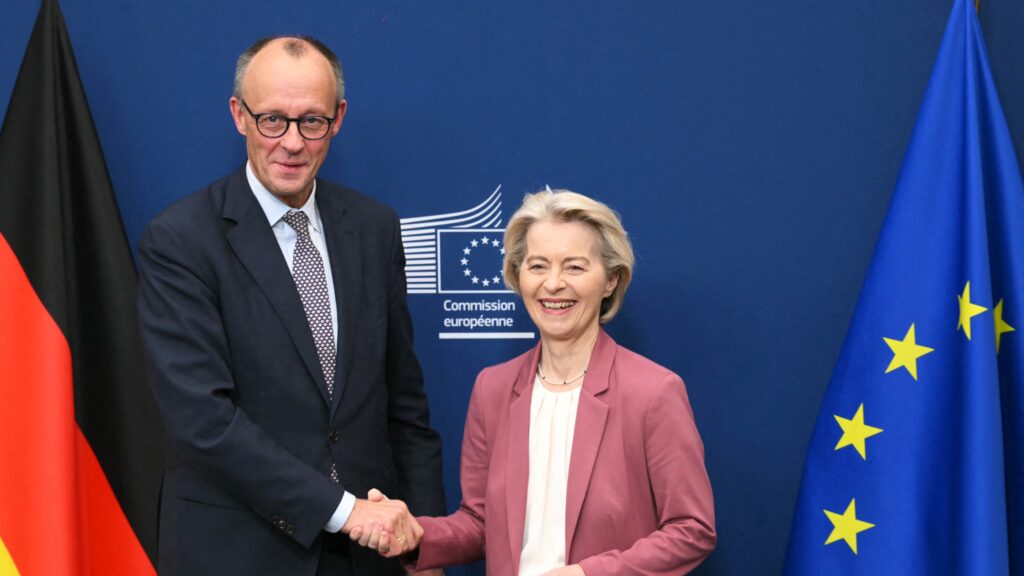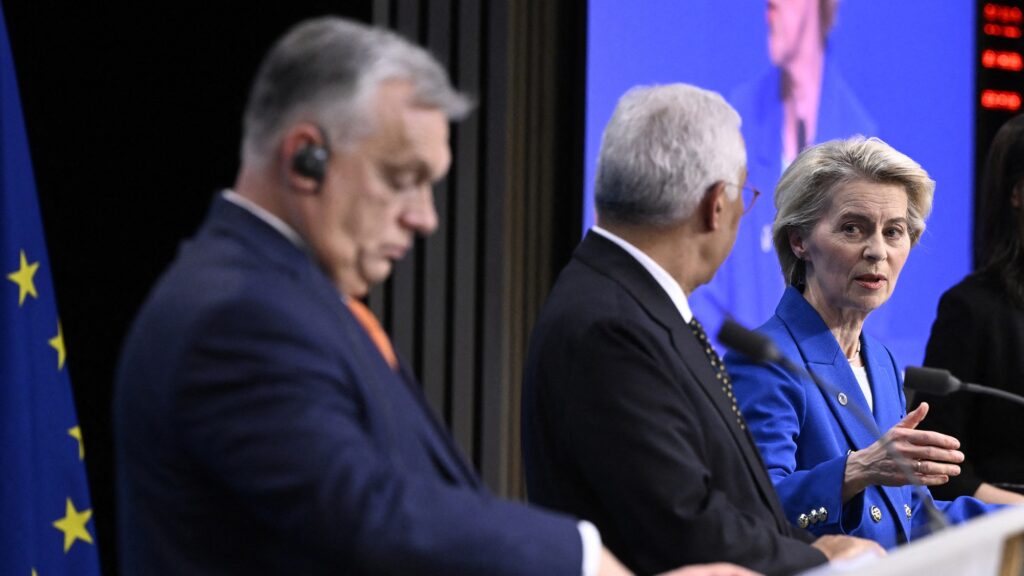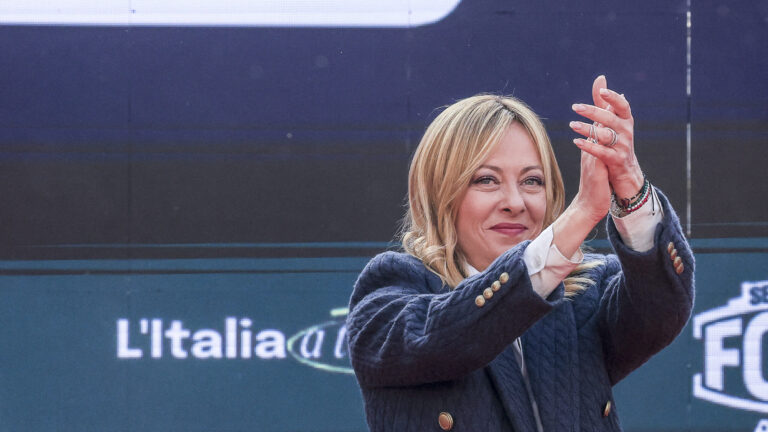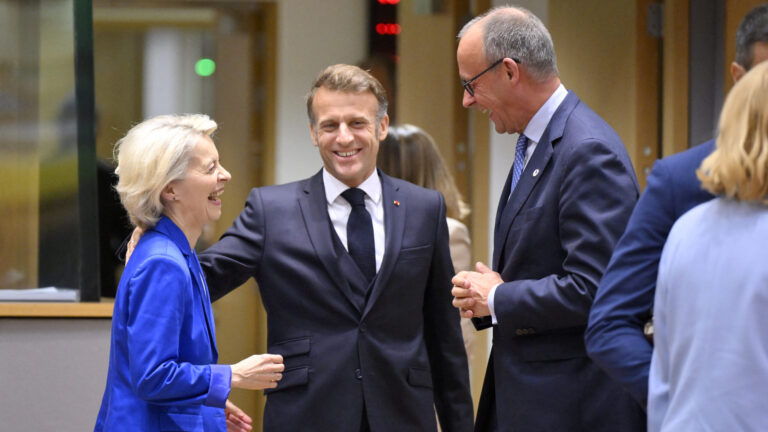Ursula von der Leyen, the President of the European Commission, delivered her annual ‘State of the Union’ address once again. The subtle manipulation embedded in the title, implying a strong desire-driven perspective, may not be immediately evident to Hungarian audiences. However, for those familiar with the current inclinations of the European Commission in the English-speaking world, the titling raises the question: does it truly reflect the current ‘state’ of the Union, or is it a portrayal of a federalist view of a ‘European State’ shaped by the progressive elite currently in power?
Now let’s look at the speech: a partly apologetic, partly self-adulating piece of rhetoric, but definitely one infused with intense emotions. An address that can be considered ‘historic’ from various standpoints.
On the one hand,
the State of the Union address was given amidst truly dire geopolitical and economic events.
Yet, it also holds historical significance as the lengthiest annual evaluation delivered by any President of the European Commission to date. As highlighted by the European Union research director of the Center for Fundamental Rights during a press conference, von der Leyen expounded in a grand total of 6,732 words on her perspective of the ‘State of the Union’.
Indeed, a total of 6,732 words can encompass a plethora of ideas. Arguably, given today’s geopolitical and economic context, this word count might even be insufficient. Either way, citizens not yet disillusioned with Brussels politics might have rightly expected a feasible vision for the future, concise strategies, and pathways out of the economic labyrinth from the speech—in simpler terms, solutions. Regrettably, these were notably absent. The German lobby, for certain, scored another goal, while we did not draw any closer to peace in Ukraine—or at the very least, a ceasefire. Instead,
we learned that the Eurofederalist hubris may extend beyond the EU’s external borders in the future.
Given that an escalating conflict is raging beyond the EU’s borders, it would have been a reasonable expectation for von der Leyen’s yearly address to emphasize the urgency of achieving peace at last. Instead, we heard about encouraging arms shipments, with the term ‘peace’ mentioned only three times, and not once in relation to the Russian-Ukrainian war. ‘Every cloud has a silver lining’, however, as the saying goes—let us not forget that last year’s address remained silent altogether on the topic of peace.
Yet, this year too, we cannot shake off the sense of something missing. Or has anyone heard any mention in the speech of the Pfizer text messages, swallowed by the blackhole of the Commission President’s smartphone (a matter that the European Ombudsman has long been pursuing)?
Did the President speak about the arguably largest yet unresolved corruption scandal in the history of the European Parliament? All these omissions send a clear message to European citizens:
the Brussels elites aren’t interested in providing explanations to the people about critical issues
such as the war, constructive collaboration with neighbouring candidate countries awaiting admission, Europe’s food security, and other pressing global economic concerns.
Or should we applaud as Ursula von der Leyen remained tight-lipped about how she plans to protect hundreds of thousands of European farmers when Ukrainian grain, not meeting European standards, inundated the common market at cutthroat prices? Let us not overlook the reality that, akin to the migration crisis, Europe once again relies on the prudence of Eastern European leaders (as explored in our article).
Can environmentalists truly celebrate after hearing that Ursula von der Leyen literally offered the European Union Single Market to the enigmatic hydrogen lobby?
Moreover, given the one-sided narrative dictated by the Brussels bureaucracy around the Rule of Law (i.e. ‘Polen- und Ungarn- bashing’), one wonders if recognized candidates for membership of the European Union can genuinely rejoice at Ursula von der Leyen’s announcement about opening the Rule of Law Reports to those candidate countries who ‘get up to speed even faster.’ The heroic stance of the Ukrainian nation deserves immense respect; however, it remains unclear what kind of content and recommendations a report on the rule of law can hold for a country engulfed in war.
‘In just under 300 days, Europeans will take to the polls in our unique and remarkable democracy.’
It was with these words that President of the Commission Ursula von der Leyen commenced her marathon-like, and perhaps final, ‘State of the Union’ address. In 300 days, it will become evident whether this period sufficed for the Brussels leadership to demonstrate their worthiness of the voters’ trust for the upcoming term. For now, scepticism about that remains warranted.

